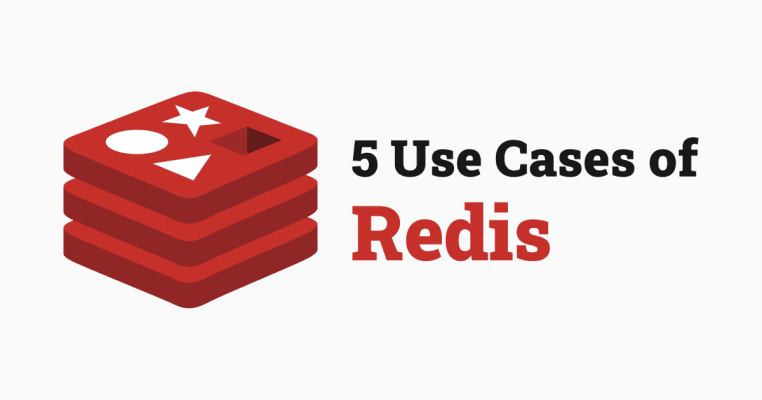5 Use Cases of Redis: The Unsung Hero in Cache Management
Using Redis as a caching mechanism has become almost ubiquitous in modern software development. However, there are specific scenarios where Redis truly shines and becomes an indispensable tool. Here, we explore five technical cases where using Redis is not only convenient but practically transformative.

1. Optimizing Queries in Relational Databases
Context
Imagine you have an e-commerce application with millions of products. Each time a user performs a search, the application needs to query the database to retrieve the results. These queries can be costly and slow, especially when involving multiple joins and complex filters.
Solution with Redis
Redis allows you to store the results of these complex queries in the cache. Each time a search is performed, the application first checks if the result is already in the cache. If it is, the result is returned immediately, avoiding the database query. If not, the query is executed, the result is stored in Redis, and then returned to the user.
Implementation
import redis
import mysql.connector
# Redis Configuration
cache = redis.Redis(host='localhost', port=6379, db=0)
# MySQL Configuration
db = mysql.connector.connect(
host="localhost",
user="user",
password="password",
database="ecommerce"
)
def search_products(query):
# Check if the result is in cache
cached_result = cache.get(query)
if cached_result:
return cached_result
# Perform the database query
cursor = db.cursor()
cursor.execute("SELECT * FROM products WHERE name LIKE %s", (f"%{query}%",))
result = cursor.fetchall()
# Store the result in Redis
cache.set(query, result, ex=3600) # Cache for 1 hour
return result
Benefits
- Reduced Load on Database: Fewer database queries.
- Faster Response Times: Almost instant results for common searches.
- Scalability: Better handling of traffic spikes.
2. Session Management in Web Applications
Context
Modern web applications require efficient session management to provide a seamless user experience and maintain user state information. This becomes critical in applications with high concurrency and demand.
Solution with Redis
Redis is an ideal choice for session management due to its speed and ability to handle large volumes of in-memory data. It can store session data and offer nearly instant retrieval.
Implementation
import redis
from flask import Flask, session
app = Flask(__name__)
app.secret_key = 'supersecretkey'
# Redis Configuration for sessions
app.config['SESSION_TYPE'] = 'redis'
app.config['SESSION_PERMANENT'] = False
app.config['SESSION_USE_SIGNER'] = True
app.config['SESSION_REDIS'] = redis.StrictRedis(host='localhost', port=6379, db=0)
@app.route('/set_session')
def set_session():
session['user'] = 'Manuel Benancio'
return 'Session set for Manuel Benancio'
@app.route('/get_session')
def get_session():
user = session.get('user')
return f'Session for user: {user}'
Benefits
- Fast Persistence: Quick access to session data.
- Horizontal Scalability: Redis can be easily scaled to handle more users.
- High Availability: High availability and replication configurations.
3. Implementing Real-Time Messaging Systems
Context
Messaging and chat applications require systems that can handle large volumes of messages in real time. Low latency and the ability to scale are essential.
Solution with Redis
Redis, with its Pub/Sub (publish/subscribe) functionality, offers an efficient way to handle real-time messaging systems. It allows messages to be published to “channels” to which clients can subscribe and receive messages almost instantly.
Implementation
import redis
import threading
# Redis Configuration
r = redis.StrictRedis(host='localhost', port=6379, db=0)
def message_handler(message):
print(f"Received message: {message['data']}")
def subscriber():
pubsub = r.pubsub()
pubsub.subscribe(**{'chat_channel': message_handler})
pubsub.run_in_thread(sleep_time=0.001)
def publisher(message):
r.publish('chat_channel', message)
# Start the subscriber in a separate thread
thread = threading.Thread(target=subscriber)
thread.start()
# Publish a message
publisher('Hello, this is a real-time message!')
Benefits
- Low Latency: Real-time message delivery.
- Scalability: Support for multiple subscribers and publishers.
- Simplicity: Easy to implement and maintain.
4. Caching Results of External API Calls
Context
Modern applications often rely on external APIs to fetch data. These calls can be slow and subject to rate limits, affecting the user experience.
Solution with Redis
Storing the results of API calls in Redis can significantly improve performance and reduce the load on external APIs. An expiration strategy can be implemented to keep the data fresh.
Implementation
import redis
import requests
# Redis Configuration
cache = redis.StrictRedis(host='localhost', port=6379, db=0)
def get_external_api_data(api_url):
# Check if the result is in cache
cached_result = cache.get(api_url)
if cached_result:
return cached_result
# Perform the API call
response = requests.get(api_url)
data = response.json()
# Store the result in Redis
cache.set(api_url, data, ex=600) # Cache for 10 minutes
return data
# Example usage
api_url = 'https://api.example.com/data'
data = get_external_api_data(api_url)
print(data)
Benefits
- Improved Performance: Lower latency in API responses.
- Cost Reduction: Fewer calls to potentially costly APIs.
- Rate Limit Management: Avoids exceeding API rate limits.
5. Temporary Storage of Intensive Calculation Results
Context
Some applications require intensive calculations that can take time. Storing the results of these calculations can improve performance, especially if the calculations are frequently repeated.
Solution with Redis
Redis can store the results of these calculations, allowing for quick retrieval without the need to recalculate. This is particularly useful in scientific applications, data analysis, and image processing.
Implementation
import redis
import time
# Redis Configuration
cache = redis.StrictRedis(host='localhost', port=6379, db=0)
def intensive_calculation(input_data):
# Simulate intensive calculation
time.sleep(5)
result = sum(input_data)
return result
def get_calculation_result(input_data):
key = f"calc_result:{hash(tuple(input_data))}"
# Check if the result is in cache
cached_result = cache.get(key)
if cached_result:
return int(cached_result)
# Perform the intensive calculation
result = intensive_calculation(input_data)
# Store the result in Redis
cache.set(key, result, ex=3600) # Cache for 1 hour
return result
# Example usage
input_data = [1, 2, 3, 4, 5]
result = get_calculation_result(input_data)
print(result)
Benefits
- Time Savings: Instant results for previously performed calculations.
- Efficiency: Reduced computational load on the system.
- Scalability: Better handling of multiple concurrent requests.
In summary, Redis is a versatile tool that can transform the performance and efficiency of your applications in various scenarios. From optimizing database queries to managing sessions and handling real-time messaging, Redis offers robust and effective solutions. So, the next time you face a performance challenge, remember that Redis could be your unsung hero.





